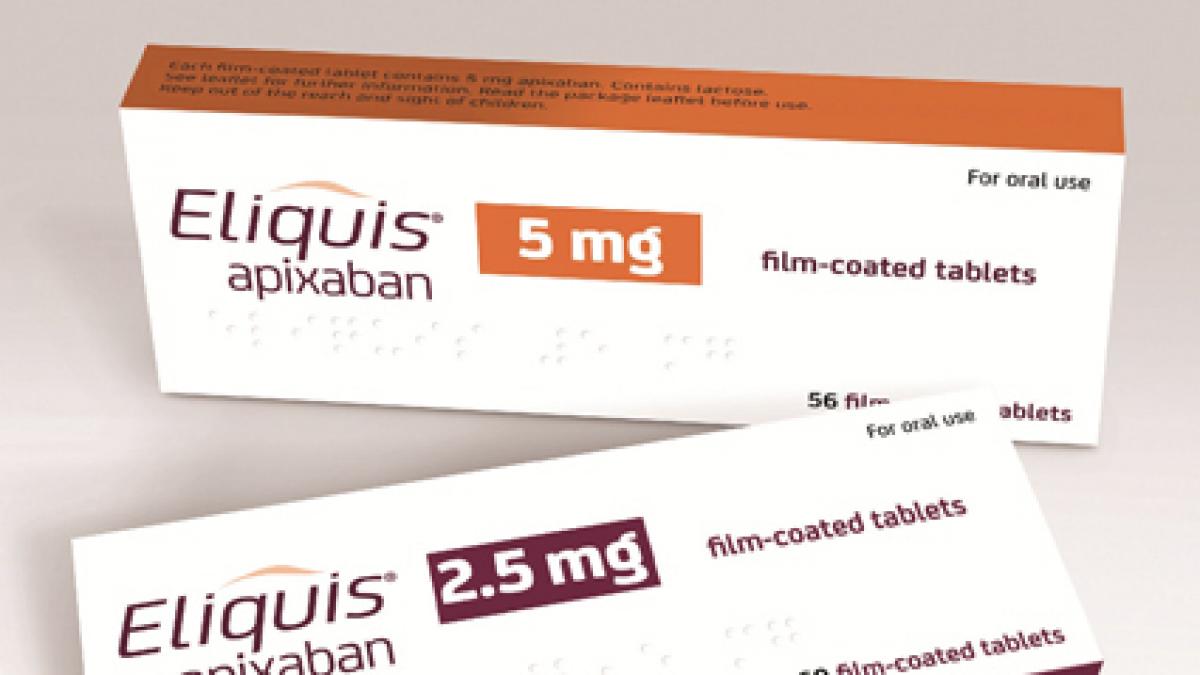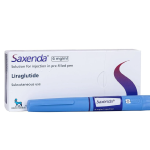Why should I buy Eliquis?
Let’s understand why this medication is a popular choice among healthcare providers and patients alike.
First remember Eliquis is a powerful blood thinner medication that offers numerous benefits and is widely prescribed for various conditions.
Key Takeaways:
- Prevent strokes and potentially fatal blood clots
- Lower the risk of strokes and blood clots in people with atrial fibrillation
- Prescribed after knee or hip replacement surgery to prevent deep vein thrombosis and pulmonary embolism
- Effective in reducing the risk of blood clots and is well-regarded by users
The Safety and Effectiveness of Eliquis
By blocking Factor Xa, an enzyme involved in blood clotting, Eliquis significantly lowers the risk of blood clots in individuals with atrial fibrillation, an irregular heartbeat, as well as those who have undergone knee or hip replacement surgery to prevent deep vein thrombosis and pulmonary embolism.
While Eliquis offers great benefits, it is crucial to consider its safety and potential side effects. Common side effects include minor bleeding and bruising, which are generally manageable. However, serious bleeding can occur, although it is rare. It is important to note that The medication has specific warnings regarding spinal or epidural blood clots and the risk of abruptly stopping the medication.
In terms of safety, Eliquis has undergone rigorous testing and has been approved by the FDA for its intended uses. While errors were discovered during a clinical trial, subsequent analyses supported the safety and effectiveness of the drug, leading to its eventual approval. Users have generally reported positive experiences with the medication, further supporting its safety and efficacy.
To ensure the safety and effectiveness, follow the prescribed dosage and not miss any doses. Inform your healthcare provider about all medications, including over-the-counter medicines, vitamins, and herbal supplements, to avoid potential drug interactions. By being proactive and vigilant, you can maximize the benefits of Eliquis while minimizing any potential risks.
The Safety and Effectiveness of Eliquis
| Benefit | Risk |
|---|---|
| Significantly lowers the risk of strokes and blood clots | Potential for serious bleeding, although rare |
| Approved by the FDA for its intended uses | Specific warnings related to spinal or epidural blood clots and abrupt discontinuation |
| Positive experiences reported by users | Common side effects such as minor bleeding and bruising |
- Follow prescribed dosage and do not miss any doses
- Inform healthcare provider about all medications, including over-the-counter medicines
- Be aware of potential drug interactions
- Report any unusual side effects promptly
Dosage for Atrial Fibrillation:
The most commonly prescribed dosage for patients with atrial fibrillation is 5 mg taken twice a day. However, your healthcare provider may adjust the dosage based on your individual needs and medical history. It is crucial to take the medication as directed by your doctor and not to miss any doses.
Dosage for Deep Vein Thrombosis (DVT) and Pulmonary Embolism (PE) Treatment:
For the treatment of DVT and PE, the initial dosage of Eliquis is 10 mg taken twice daily for seven days. After the initial phase, a lower maintenance dosage of 5 mg taken twice daily is often recommended. It is important to adhere to the prescribed dosing schedule to maximize the drug’s effectiveness in preventing blood clots.
Purchasing Eliquis Online:
If you are considering purchasing Eliquis online, it is crucial to do so from a reputable source. Licensed online pharmacies, such as prescrimeds.com, can provide a convenient option for obtaining your medication.
Table: Eliquis Dosages
| Condition | Dosage | Frequency |
|---|---|---|
| Atrial Fibrillation | 5 mg | Twice daily |
| Deep Vein Thrombosis (DVT) and Pulmonary Embolism (PE) Treatment | 10 mg (initial), 5 mg (maintenance) | Twice daily |
Remember, it is essential to consult your healthcare provider before starting or modifying any medication regimen. They will determine the appropriate dosage for your specific condition and will consider factors such as your overall health and any other medications you may be taking. Adhering to the prescribed dosage and administration guidelines will help ensure the safe and effective use of Eliquis.
Potential Drug Interactions
Potential Medication Interactions with Eliquis
When taking Eliquis, it is important to be aware of potential drug interactions that could affect its effectiveness or increase the risk of bleeding. Certain medications can have significant interactions with Eliquis, so it is crucial to inform your doctor about all medications you are taking, including over-the-counter medicines, vitamins, and herbal supplements.
Examples of medications that can interact with Eliquis include:
- Aspirin
- Non-steroidal anti-inflammatory drugs (NSAIDs)
- Heparin
- Selective serotonin reuptake inhibitors (SSRIs)
- Serotonin-norepinephrine reuptake inhibitors (SNRIs)
- Other anticoagulants
These are just a few examples, and there may be other medications that could interact with Eliquis. It is always best to consult with your healthcare provider before starting any new medications while taking Eliquis.
Interactions with CYP3A4 Inhibitors and Inducers
Eliquis can also interact with medications that inhibit or induce the CYP3A4 enzyme, which can affect how your body metabolizes the drug. Medications that inhibit CYP3A4 can increase the concentration of Eliquis in the blood, potentially leading to an increased risk of bleeding. On the other hand, medications that induce CYP3A4 can decrease the concentration of Eliquis, reducing its effectiveness.
It is important to discuss all medications and supplements you are taking with your doctor, especially if they are known inhibitors or inducers of CYP3A4. Your healthcare provider can determine the best course of action to ensure your safety and the optimal effectiveness of Eliquis.
Table: Examples of Medications that can Interact with Eliquis
| Medication | Potential Interaction |
|---|---|
| Aspirin | Increased risk of bleeding |
| NSAIDs | Increased risk of bleeding |
| Heparin | Increased risk of bleeding |
| SSRIs | Increased risk of bleeding |
| SNRIs | Increased risk of bleeding |
| Other anticoagulants | Increased risk of bleeding |
Common and Serious Side Effects
When taking Eliquis, it is important to be aware of both common and serious side effects that may occur. While most users experience only minor side effects, it is crucial to monitor your body’s response to the medication and seek medical attention if any serious side effects occur.
Common Side Effects:
- Easy bruising
- Minor bleeding that takes longer to stop
These common side effects are generally mild and do not require immediate medical attention. However, it is important to inform your healthcare provider about them during your regular check-ups.
Serious Side Effects:
- Red or black stools
- Coughing up blood
- Severe pain or swelling
These serious side effects may suggest internal bleeding or other complications. If you experience any of these symptoms, it is crucial to seek immediate medical attention to ensure your safety and well-being.
“If you experience any signs of bleeding or serious side effects, such as red or black stools, coughing up blood, or severe pain or swelling, seek immediate medical attention.”
It is important to remember that while serious side effects are rare, they can occur. By staying informed and monitoring your body’s response to Eliquis, you can ensure that you receive prompt medical attention if necessary. Always consult with your healthcare provider regarding any concerns or questions about the side effects of Eliquis.
| Common Side Effects | Serious Side Effects |
|---|---|
| Easy bruising | Red or black stools |
| Minor bleeding that takes longer to stop | Coughing up blood |
| Severe pain or swelling |
Important Safety Considerations
When it comes to taking Eliquis, there are several important safety considerations that you should be aware of. It is crucial to follow your doctor’s instructions and not stop taking the medication abruptly without medical supervision. Additionally, there are certain individuals who should avoid taking Eliquis altogether. These include people with artificial heart valves, antiphospholipid syndrome, abnormal bleeding conditions, or severe liver impairment. If you fall into any of these categories, it is essential to discuss alternative treatment options with your healthcare provider.
Pregnant and breastfeeding women should also consult their doctors before taking Eliquis. While there is limited information on the use of this medication during pregnancy, studies have shown potential risks to the fetus. It is important to weigh the benefits and risks with your healthcare provider before making a decision.
Another crucial aspect of taking Eliquis is managing potential drug interactions. It is vital to inform your doctor about all medications you are taking, including over-the-counter medicines, vitamins, and herbal supplements. Eliquis can interact with certain medications, such as aspirin, NSAIDs, and other anticoagulants. Combining these medications with Eliquis may compromise its effectiveness or increase the risk of bleeding. Your doctor will be able to provide guidance on managing these interactions and adjusting your medication regimen if necessary.
| Important Safety Considerations | Recommended Actions |
|---|---|
| Do not stop taking Eliquis abruptly without medical supervision. | Follow your doctor’s instructions and consult with them before making any changes to your medication regimen. |
| Avoid taking Eliquis if you have artificial heart valves, antiphospholipid syndrome, abnormal bleeding conditions, or severe liver impairment. | Discuss alternative treatment options with your healthcare provider. |
| Consult your doctor if you are pregnant or breastfeeding. | Weigh the benefits and risks with your healthcare provider before making a decision. |
| Inform your doctor about all medications you are taking, including over-the-counter medicines, vitamins, and herbal supplements. | Your doctor will provide guidance on managing potential drug interactions. |
Conclusion
When it comes to taking Eliquis, it is crucial to prioritize safety and adhere to your doctor’s instructions. Understanding the important safety considerations, avoiding the medication if you fall into certain risk categories, and managing potential drug interactions are key steps to ensure the safe and effective use of Eliquis. By working closely with your healthcare provider and staying informed, you can minimize risks and maximize the benefits of this powerful blood thinner.
Section 7: Clinical Trial Errors and Approval
In the process of obtaining FDA approval, Eliquis faced challenges due to errors discovered in a clinical trial conducted by Bristol Myers Squibb. These errors caused delays in the approval timeline and raised concerns about the validity of the trial results. However, despite the initial setbacks, subsequent analyses and investigations determined that the major findings of the trial remained accurate and reliable.
The FDA conducted a thorough review of the trial data and concluded that Eliquis demonstrated significant safety and effectiveness in its intended use. The errors discovered in the trial did not undermine the overall efficacy of the drug. As a result, Eliquis was granted FDA approval for its indicated uses.
While the clinical trial errors initially caused apprehension, it is important to note that the subsequent analyses and investigations supported the safety and effectiveness of Eliquis. Users of Eliquis have reported positive experiences with the drug, further affirming its value in preventing strokes and blood clots.
“Despite the initial concerns raised by the clinical trial errors, the FDA’s thorough review affirmed the effectiveness and safety of Eliquis. The errors, although regrettable, did not invalidate the significant benefits that Eliquis offers to patients.” – Dr. Sarah Thompson, Cardiologist
Section 8: Important Information for Patients
If you are considering taking Eliquis to manage your health condition, it is essential to be aware of important information to ensure your safety and well-being. Here are a few key points to keep in mind:
Consult your healthcare provider for dosing instructions and potential side effects:
Your doctor will prescribe the appropriate dosage of Eliquis based on your specific condition and medical history. It is crucial to follow their instructions carefully and not to adjust the dosage without consulting them first. Additionally, discuss any potential side effects or concerns you may have, as your doctor can provide you with valuable insights and recommendations.
Consider the cost of Eliquis:
While the cost of Eliquis can vary depending on your insurance coverage and healthcare provider, it is worth exploring options to find affordable prices. Many reputable online pharmacies, such as prescrimeds.com, offer competitive prices for Eliquis. However, it is important to exercise caution when purchasing medication online and ensure the legitimacy and safety of the source.
Be cautious with purchasing cheap Eliquis:
While finding cheaper alternatives for medication can be tempting, it is crucial to prioritize safety and ensure that the product you are purchasing is genuine and approved. Illegitimate sources may sell counterfeit or expired medication that can be ineffective or even harmful. It is advisable to consult your healthcare provider or pharmacist for guidance on reputable sources for purchasing Eliquis at an affordable price.
| Important Information | Considerations |
|---|---|
| Consult your healthcare provider | Follow dosing instructions and discuss potential side effects |
| Cost of Eliquis | Explore options for affordable prices, such as reputable online pharmacies |
| Purchasing cheap Eliquis | Exercise caution and ensure the safety and legitimacy of the source |
By taking these factors into account, you can make informed decisions regarding your Eliquis prescription, ensuring your safety and optimizing your treatment outcomes. Remember to prioritize open communication with your healthcare provider and seek their guidance whenever necessary.
Conclusion
In conclusion, Eliquis is a safe and effective blood thinner that offers significant benefits in preventing strokes and blood clots. Approved by the FDA, Eliquis has been widely used and well-regarded by both healthcare providers and users. While the drug carries some risks, such as bleeding, its benefits generally outweigh the potential side effects.
To ensure your safety while taking Eliquis, it is crucial to follow your doctor’s instructions carefully. Be aware of potential drug interactions and inform your healthcare provider about all medications you are taking. Promptly report any unusual side effects or signs of bleeding to your doctor.
Eliquis is a trusted medication that effectively reduces the risk of blood clots and improves patient outcomes.
FAQ
Why should I buy Eliquis?
Eliquis is a powerful blood thinner prescribed to prevent strokes and potentially fatal blood clots. It has been found to be effective and is well-regarded by users.
What are the key benefits and uses of Eliquis?
Eliquis is used to lower the risk of strokes and blood clots in people with atrial fibrillation, an irregular heartbeat. It is also prescribed after knee or hip replacement surgery to prevent deep vein thrombosis and pulmonary embolism.
Is Eliquis safe and effective?
Yes, Eliquis has been approved by the FDA and its benefits generally outweigh its risks. While there are potential risks, such as serious bleeding, they are rare. Users of Eliquis have generally reported positive experiences with the drug.
What are the dosages and administration instructions for Eliquis?
Eliquis is available in 2.5 mg and 5 mg oral tablets. The most commonly prescribed dosage for patients with atrial fibrillation is 5 mg taken twice a day. For DVT and PE treatment, the initial dosage is 10 mg taken twice daily for seven days, followed by a lower maintenance dosage. It is important to take the medication as prescribed and not to miss any doses.
Can I purchase Eliquis online?
Yes, purchasing Eliquis online should be done through a reputable source, such as a licensed online pharmacy.
Are there any potential drug interactions with Eliquis?
Yes, Eliquis can interact with certain medications, such as aspirin, NSAIDs, heparin, SSRIs, SNRIs, and other anticoagulants. It is important to inform your doctor about all medications you are taking, including over-the-counter medicines, vitamins, and herbal supplements.
Additionally, taking it with CYP3A4 inhibitors or inducers can have significant interactions. It is crucial to follow your doctor’s instructions and not combine Eliquis with any medications that may compromise its effectiveness or increase the risk of bleeding.
What are the common and serious side effects of Eliquis?
Common side effects include minor bleeding and bruising, but serious bleeding is rare. Serious and potentially life-threatening bleeding is the most severe side effect, although it is rare.
If you experience any signs of bleeding or serious side effects, such as red or black stools, coughing up blood, or severe pain or swelling, seek immediate medical attention.
Are there any important safety considerations when taking Eliquis?
Yes, is not recommended for certain individuals, including those with artificial heart valves, antiphospholipid syndrome, abnormal bleeding conditions, or severe liver impairment.
Pregnant and breastfeeding women should consult their doctors before taking Eliquis. It is important to follow your doctor’s instructions and not stop taking the medication abruptly without medical supervision. Discuss any potential risks or concerns with your healthcare provider.
Where can I find affordable prices for Eliquis?
The cost of Eliquis can vary, and it is advisable to explore options to find affordable prices, such as purchasing from reputable online pharmacies like prescrimeds.com. However, it is essential to exercise caution when purchasing medication online and ensure the legitimacy and safety of the source.


